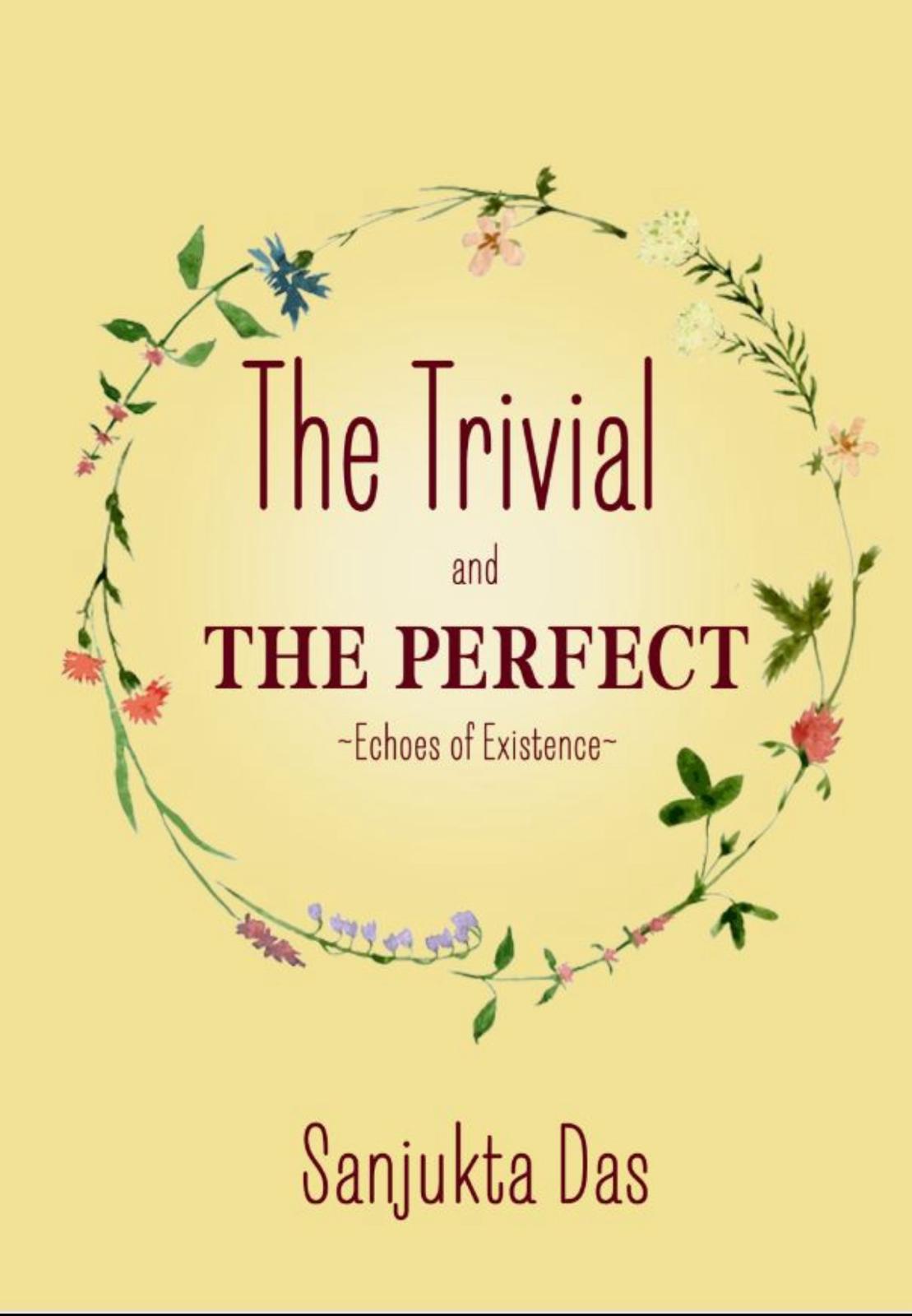The Sweet Poison Of Love
May 2025

Love and adventure don’t mix – or so Pallabi believed.
Raised in the narrow, jasmine-scented lanes of Allahabad by a grandmother with a voice like river-song and a heart full of stories, Pallabi’s childhood was steeped in myth and magic. Every evening, as the lamps were lit and shadows danced on the courtyard walls, her Didun would recite tales from the Ramayana, the lyrical verses of Meghaduta, and the fierce courage of women in Bengal’s folk legends. Those stories lit up Pallabi’s imagination like a sky full of stars.
By the time she became a poetry teacher at the Government Girls’ School in 1918, Pallabi had outgrown the myths—but not the hunger for adventure they had stirred in her. She dreamed of traveling beyond the banks of the Yamuna, crossing the Vindhyas, working in hill stations or even with the newly formed Indian Women’s Medical Corps. Romance, she believed, was a distraction—another golden cage, however beautiful.
Then came the autumn of 1919, and the chance meeting that would shift her world. On a dusky platform in Jhansi, as she returned from a literary conference in Pune, her train stalled for repairs. Amidst the delay, she found herself seated beside a man reading Rubaiyat of Omar Khayyam on a bench in front of a chai stall.
Captain Arvind Rao, a chemist-turned-army officer, was on his way home to Bangalore after a long posting near the Sikkim border. He spoke little, but when he did, it was with gravity. And when he quoted Tagore softly in Tamil-laced Bengali, something sparked. Quite literally. At that moment, the tea at the little stall on the railway platform boiled over, spilling onto the open flame with a sharp hiss – just as a train thundered past, its whistle rising into the evening air. Their startled laughter merged with the sound, carried off like steam into the dusk.
It was barely an hour. Yet Pallabi carried that hour home like a secret tucked inside her sari pleats. They had exchanged addresses – mobile numbers too, jotted hurriedly on the back of an old grocery bill. But the stranger never called. No message ever came.
Months passed.
Life resumed its ordinary rhythm – classes, tutions, the sound of conch shells and street hawkers. Her dreams of adventure remained shelved, their edges dulled by duty and expectation.
Then, on a crisp February morning in 1921, an envelope arrived. Inside was a handmade card, delicate and faintly scented, fragile with pressed rose petals, and one line written in unmistakable ink:
“If I have touched your spirit once, know you’ve lit a fire in mine.”
Pallabi’s hands trembled. The teacup in her grasp cooled unnoticed. She read the words several times… and knew.
She wrote back.
Ten years later, Pallabi stirred ginger tea in the modest kitchen of their home in Basavanagudi. The Bangalore breeze teased the edge of the curtain, fluttering in the familiar scent of rain and earth. This was Arvind’s ancestral house—its old red-oxide floors still cool under her feet, its teak windows holding stories whispered through generations.
Upstairs, Arvind lay quiet.
His mood swings had long become a part of her world… a spectrum of light and shadow that often made no sense to anyone but her. Some days he was luminous, visionary, electric. Others, he vanished into himself, unreachable, like the bird in that faded poster above their bed – flying over the ocean waves, wings open to an endless sky.
There had been moments when she thought of leaving. When loneliness whispered louder than memory. But each time, she remembered his words from that night long ago at the railway station:
“Love is the sweet poison that lets us live longer the more we let it kill us.”
Perhaps it was madness. Or perhaps it was faith.
She placed two terracotta cups on a tray, added a small vase of fresh bouganvillea flowers – his favorite – and poured the steaming tea into a teapot. He loved bed tea in the mornings. As she walked upstairs, her breath caught slightly, unsure of what she would find.
He closed the book he was reading, gently and looked up when she entered. His eyes softened as her pallu fell on the tray, which she was trying to place properly, when the cups, the teapot, and the purple blooms swayed gently in the tiny bowl. And then, slowly, he smiled.
She exhaled. Today was not an angry day.
She set the tray down beside him, their silence filled with the warmth of ritual and remembrance.
Not every morning was easy.
Not every day was loving.
But this one was enough.
Sometimes, adventure was not a voyage across oceans. Sometimes, it was the courage to stay. To pour two cups of tea. To believe that love, in all its flawed persistence, was a story worth living.
************************************************************************************************
Anandangan: A Love Beyond Boundaries
February 2025

Niru and Dhruv worked in the same office, navigating the endless demands of their careers and family lives. They were both responsible, devoted, and deeply embedded in their worlds yet somewhere within, they carried an unspoken longing. Not for something forbidden, but for a space where they could simply breathe.
At home, Niru juggled not just work and household responsibilities but also the relentless demands of caring for her ailing father-in-law, whose fading memory was taking a toll on all of them. The weight of his illness pressed heavily on her, stretching her patience and strength thin. Dhruv, on the other hand, grappled with the growing distance in his marriage. His wife immersed herself in social gatherings with her friends, leaving little room for their shared moments. Yet, she never failed to pressure him for a bigger apartment in a better part of the city – an expense he simply couldn’t afford. No matter how often he tried to reason with her, she refused to accept it, her expectations widening the rift between them.
One afternoon, weary from meetings and deadline expectations, they stepped out for a walk. Wandering through a quiet alley behind their office, they stumbled upon a hidden courtyard framed by an arched doorway. The golden autumn leaves rustled softly, the tiled floor shimmered under the filtered sunlight, and the scent of earth and flowers filled the air.
“This place feels like peace,” Niru whispered, running her fingers along the mosaic tiles.
Dhruv nodded, exhaling deeply, “Like it was waiting for us.”
From that day on, Anandangan “the courtyard of joy”, as Niru named it became their quiet refuge. They never planned their meetings, yet whenever the weight of life grew unbearable, they would find themselves drawn there, standing side by side, speaking in murmurs or in silence.
They talked about books, about childhood dreams that had faded, about happiness and its fleeting nature. Their connection never felt like a betrayal, only an understanding one that did not disrupt the homes they had built but added something unspoken to their lives. A stillness. A pause.
But then, there was that week.
Dhruv had arrived one evening, his usual calm replaced with a restlessness she had never seen before. He paced, barely speaking. When he finally did, his words were sharp, distant. “Why did you text me?”
Sometimes, we forget that not all spaces are ours to claim.
And then, for seven days, he did not come, for Niru at Anandangan.
Niru waited. At first, she told herself it was a mere coincidence. Then, she worried. By the fifth day, she understood. There were boundaries, invisible yet crucial, that neither of them could afford to cross.
When Dhruv finally returned, she did not ask where he had been. He did not offer an explanation. Instead, they sat on the stone bench in silence, listening to the rustling leaves, as if nothing had happened.
But something had.
The air between them was thick with unspoken words, the weight of an invisible shift pressing down on them. The leaves whispered secrets they wouldn’t voice, and the distance that had long settled between them now felt like an unbridgeable chasm. Yet, in that shared silence, there was also an unacknowledged understanding—something had changed, and neither knew if it could ever be undone.
From that day forward, Niru never let herself forget ”Anandangan” was not a place to claim, only a place to visit. Their connection was not something to hold onto, only something to cherish.
Years passed, and life carried them in different directions; transfers, responsibilities, the natural drift of time.
One autumn afternoon, much later, Niru found herself standing alone under the familiar archway. The wind carried a whisper of a memory, a presence she could almost feel. She smiled. Some loves do not need names, nor promises. Some just need a place. And Anandangan had been theirs.
*******************************************************************************************************************
Beyond The White
January 2025

*************************************************************************************************
The Answer
December 2024


Twilight At The Estate
October 2024

In the heart of British colonial India, amidst the grandeur of a sprawling estate, lived a woman named Kavita who served Lady Evelyn with unwavering devotion. Kavita’s days were filled with tending to Lady Evelyn’s needs, from meticulously arranging her wardrobe and assisting with her elaborate attire, to preparing her favorite herbal infusions that reminded the Lady of the English countryside.
Kavita managed the household with quiet efficiency, overseeing the staff and ensuring that the estate ran smoothly. Beyond her duties, she was Lady Evelyn’s trusted confidante, offering her comfort during times of homesickness and loneliness. Their bond, though shaped by the dynamics of colonial hierarchy, transcended servant and mistress; Kavita became an irreplaceable figure in Lady Evelyn’s world, bridging two vastly different cultures with grace and compassion.
In the unique connection that blossomed between Kavita and Lady Evelyn, they shared whispered conversations by the garden, laughing at each other’s jokes and confiding in one another. Kavita’s genuine care and compassion touched Lady Evelyn’s heart, transcending the boundaries of class and station.
One evening, under the soft glow of the moon, Kavita revealed her deepest secret to Lady Evelyn – she had fallen in love with none other than Lady Evelyn’s own brother, Alexander. Kavita’s voice trembled as she spoke of the forbidden affection that had grown between them, an emotion she had fought but could not suppress. To Lady Evelyn’s own surprise, her response was one of understanding and support. She had observed the tenderness between Kavita and Alexander and recognized the purity of their connection. Instead of reprimanding Kavita, Lady Evelyn offered her blessing, acknowledging that love knew no boundaries.
With Lady Evelyn’s encouragement, Kavita and Alexander’s love story began to unfold discreetly. Their stolen moments became precious gems, tucked away from the prying eyes of the estate’s society. Lady Evelyn ensured they had time to nurture their relationship, even if it meant bending the rules of convention. She loved to see her brother happy.
As the years went by, Kavita’s loyalty to Lady Evelyn never wavered. She continued to serve with grace and devotion, and her love for Alexander deepened. Lady Evelyn’s open-mindedness and acceptance of their relationship became a beacon of hope, influencing others to question the rigid norms of their time. When the winds of change finally swept through the country, bringing an end to British rule, Kavita, Lady Evelyn, and Alexander found themselves on a new path. Like a storm, everything changed , flipping their lives and scattering their certainties.
Alexander was soon called back to England, bound by his family’s tradition of marrying someone of his own class to preserve the family’s legacy. As he departed, Alexander promised he would find a way to make things right, leaving Kavita clinging to a fragile hope. Kavita was heartbroken, but she knew her love for Alexander could never defy the rigid customs of the time. She watched in silence as Alexander left, carrying with him her heart and the dreams of a life together.
Months turned into years, and life on the estate carried on, though Kavita’s heart bore an unspoken ache.
Exactly two years and seven months later, Alexander returned, his presence like a gust of wind that stirred both joy and dread in her heart.
She stood by the window as he approached, her pulse quickening with a blend of anticipation and uneasy apprehension. When their eyes met, the tenderness of their shared past lingered, but there was a distance in his gaze.
Alexander had come to say goodbye, for his path now lay elsewhere, dictated by obligations he could not ignore. His voice trembled as he explained the finality of his decision, and though Kavita’s strength wavered, she met his words with a quiet dignity. Lady Evelyn, watching the scene unfold from her quarters, felt an ache she hadn’t known before. For all her open-mindedness and bold defiance of convention, she could not rewrite the rules that had governed their lives.
As the sun dipped below the horizon, Alexander stepped into the Rolls-Royce, leaving Kavita standing on the upper balcony, framed by the estate’s graceful arches. Lady Evelyn glanced back one last time, their eyes meeting briefly.
The fading twilight cast a quiet melancholy over the mansion, as if it too mourned the love and loyalty now left behind. Kavita whispered a goodbye softly into the fading dusk.





